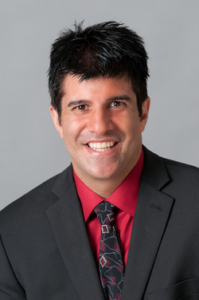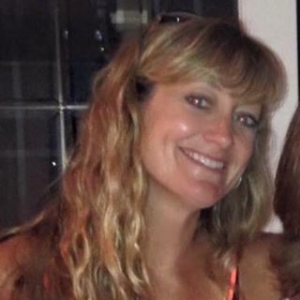Career Counselors

Daryl Capuano
CEO of The Learning Consultants
Daryl has been advising adults in Connecticut on their career counseling needs for over a decade. Daryl’s own path from Ivy-league lawyer to education-entrepreneur stems from following his own practical-idealist career process for building a career that leads to happiness and success.
Unlike most career counselors who have minimal experience in different industries and in management roles, Daryl has served on hiring committees of various private and public organizations. As the CEO of The Learning Consultants, the largest private education consultancy in Connecticut, Daryl is involved in hiring on a weekly basis.
The combination of counseling experience blended with a deep understanding of how the real world works makes Daryl’s approach to career counseling unique.
Recently named to Who’s Who in America and author of Motivate Your Son, Career Path of Abundance, and The Parents’ Guide to Career Planning For Your Twentysomething, Daryl speaks on education and career issues on a local and national level
Daryl graduated magna cum laude, Phi Beta Kappa and first in his concentration from Georgetown University. He then earned a joint JD-MGA from Penn Law School and Penn’s Fels School. Daryl also earned a prestigious Equal Justice Foundation Fellowship, for which he served at The Brookings Institute, the nation’s top think tank. Daryl lives in Old Saybrook, Connecticut with his wife and three children.
This is Daryl’s daughter which reveals something about him:

Dr. Francie Penny
BSN, RN, MPH
If you are considering a health care career in Connecticut, then Career Counseling Connecticut is fortunate to have the best health career counselor in Connecticut to help you.
Americans are living longer. That’s great news generally. But, for those seeking careers in health care, this demographic shift will lead to thousands of new health care jobs in Connecticut.
We have counselors who work with our career counseling clients in all areas, including health care exploration. But, we are fortunate to have a health care career counseling expert on staff in Francie Penny.
Francie Penny’s nearly 30 years of health care experience started as a student at Georgetown University where she completed her BSN in Nursing. After working in Mt. Sinai in New York as well as Georgetown Hospital in Washington, DC, Francie spent time in Europe before heading to California where she also worked as a nurse at San Francisco General Hospital.
Francie was then admitted to the nation’s number one school for public health, Johns Hopkins, and earned her Masters In Public Health while engaged in cutting edge clinical research and adding Baltimore to the list of cities where she served as a nurse. Francie then worked in the private sector as a health care consultant in both Philadelphia and Washington, DC. In Washington, DC, Francie also worked at one of the nation’s largest health care not-for-profit organizations.
After moving to Connecticut to raise her three children, Francie worked in a variety of health care settings included St. Raphael’s Hospital, Hartford Hospital, and Middlesex Hospital. Further stints as a school nurse, a home health care nurse, and as a Program Director at a Connecticut not-for-profit rounded Francie’s extraordinarily varied health care career.
Francie was awarded a Graduate Fellowship as well as the highly prestigious Jonas Scholarship to pursue her doctoral studies at The University of Connecticut where she teaches clinical students.
After receiving her doctorate, Francie is now a Professor at Southern Connecticut.
Francie has been interviewed by NBC, CBS, and FOX News in relation to her various health care expertise.
Francie’s extensive health care background coupled with her hilarious, engaging manner makes her a client favorite.
Why are most career counselors ineffective?
Many career advisors are well meaning but not effective. For example, most psychologists have not had enough experience in different industries, organizations, and work situations to have a real world understanding sufficient enough to advise others on a career path and the new world of work.
Most career counselors in academia are focused on one area: getting students employed. Largely, they are evaluated by the percentage of students employed at graduation. Their goal, therefore, is to get employers to be interested in their students and get their students interested in the organizations that they brought to campus. This is very important task. But, it is the task that may have brought you to this site. You are trying to figure out “what do I want to do?” The clear agenda of the placement office is to get you employed and, therefore, to push you into organizations where you are most likely to get a job. You may have found a gem in your college or graduate school who also spends time with you figuring out the bigger question. If so, treasure that resource. But, you should inquire about the background of your college or graduate school career counselors before taking their career direction advice seriously.
The best career counselors have both worked for many years in a variety of settings and are effective at providing guidance. We have seen an understandable, but somewhat alarming trend, of seasoned executives who are doing career counseling part time due to their own unemployment. Essentially, they were victims of the recent economic shift in our economy and are now providing career guidance for a fee. Some might be good. Some might be great. But, most all are not skilled at advising. They had careers in sales, marketing, finance and whatever else was slaughtered during the Great Recession but do not have the experience in counseling to provide effective advice.
Why are we different and better?
We give advice that leads to successful action.
While we find the journey to self-discovery highly important, unlike most other career counselors, we focus on getting our clients “to do something”. The something might be large, as in choosing a career path or it migth be small, as in amending a resume.
One of our career counseling clients from New Haven, Connecticut recently remarked that his other counselor pointed out problems. But, we told him how to solve his problems.
More specifically, we provide customized career counseling advice to our clients in order to help them find both happiness and success at work.
We use both words “happy” and “successful” because we think this duality is necessary.
Those who live their lives focused entirely on security usually miss happiness.
And, those who live their lives chasing their bliss at the expense of practicality often end up waiting tables for twenty years while having a career peak of playing bit parts on Broadway and CSI.
As such, those who glibly advise others to do “what you love” often miss that the marketplace has to reward you for your work. And, those who tell young people to do the most practical thing quite often lead the person to a life of quiet desperation (to paraphrase Thoreau).
So, we help people find the “zone” that matches interests/passions/personality type with areas that will also be rewarding, financially and otherwise, with financially being defined as whatever the person thinks is necessary to meet their desired lifestyle and sense of security.
What we try to do is two-fold:
(1) figure out the big picture path
This might mean that we look 5, 10 or 15 years out to draw a realistic ideal outcome.
(2) figure out the plan to get there
This usually means crafting a practical next step.
We find that people often get increased energy (lighting the fire) when they have a more defined goal. It is very hard to apply for “a job” when the person has no real sense that even a successful outcome will lead to happiness/success.
It is far easier apply for jobs – even in the face of fear – when going for a field that has reasonable promise of happiness/success.
Our Connecticut Career Counseling clients have found both success and happiness through our approach.